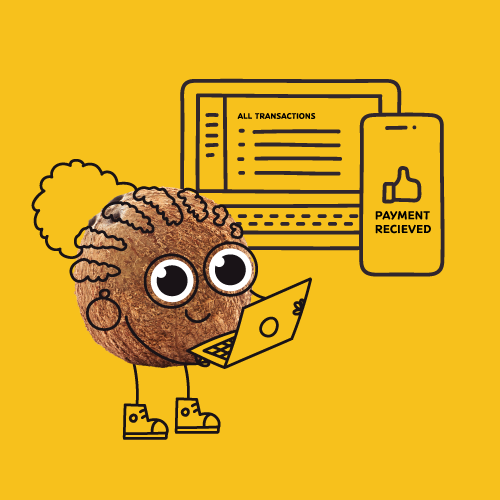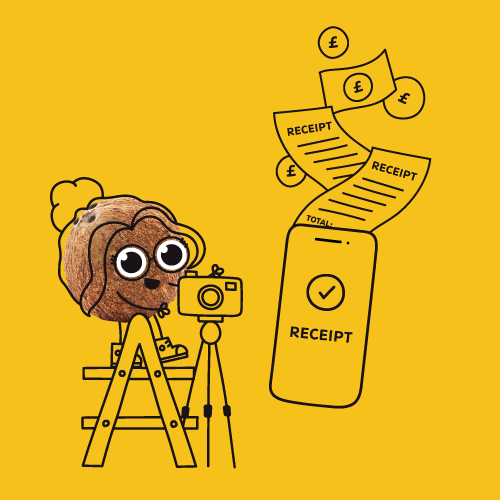Crikey, it’s finally going to happen. There’s less than a year to go until the phased introduction of Making Tax Digital (MTD) for Income Tax begins on 6 April2026.
An estimated 780,000 sole traders and landlords with annual gross trading or rental income of £50,000+ will be impacted from then, followed by 970,000(£30,000+) from April 2027 and many more (£20,000+) from 6 April 2028.
Raising awareness of MTD for Income Tax
HMRC has been stepping up its efforts to raise awareness of the fast-approaching introduction of Making Tax Digital for Income Tax. It started writing to sole traders and landlords in April to tell them that from 6 April 2026 they’ll be affected by new MTD for Income Tax digital recording and reporting requirements. They risk having to pay a fine if they fail to comply.
Should sole traders and landlords be worried about MTD for Income Tax’s introduction? Not if they’re already using good accounting software and they already update their figures regularly. The new quarterly reporting will be a piece of cake, if they have the necessary software. Worst case, they may need to upgrade or get new MTD for Income Tax-compliant accounting software.
Your biggest Making Tax Digital for Income Tax challenge
Compliance with MTD for Income Tax requirements will prove more of a challenge for sole traders and landlords who don’t use accounting software. Estimates vary, but it’s reckoned that about half of UK small businesses do not use accounting software. That’s a high percentage, but that will change when MTD for Income Tax is introduced. Many small businesses and landlords use spreadsheets or paper records, while others keep none at all, despite being required to.
Turning some of your sole trader and landlord clients into dedicated accounting software users could be one of your biggest challenges in the next few years. But MTD for Income Tax isn’t optional, so, if they won’t pay you to take care of it for them, they’ll have to use accounting software. Once they do, submitting quarterly updates will be simple, providing their financial records are accurate and up to date.
Monthly subscriptions for accounting software can be remarkably cheap, and this can of course be claimed as an allowable tax expense. Obviously, you could get a bulk user discount and profit from offering MTD-compliant accounting software as part of your monthly billing. Accounting software can be linked to credit card and bank accounts, making updating income and expense records automatic, saving you and your clients lots of time and hard work. Accounting software aimed at sole traders and landlords is really simple to use, super convenient and accessible. It makes managing cash flow and expenses much easier, too.
How will accountants gain from MTD for Income Tax?
It’s not only sole traders and landlords who stand to gain from Making Tax Digital for Income Tax and having to use accounting software. Accountants and accountancy firms could be big winners, too.
● Many more sole traders and landlords may be looking for an accountant to take away the perceived pain of MTD for IT, which could mean you attract and retain many more clients.
● You may be able to sell them additional advisory services, which will provide another boost to your firm’s profitability. And because the data is more up to date, your advice will be better informed.
● Because using accounting software and updating it more often offers your sole traders clients the possibility of better cashflow management, their business is more likely to survive and thrive.
● You’ll certainly save lots of time when it comes to working out your clients’ expenses, when currently you may have to wade through piles of receipts housed in shoeboxes or shopping bags.
● Because much of the work will be spread throughout the year, the mad scramble to detail income and expenses in the weeks or days before the 31 January Self Assessment online-filing deadline will become a thing of the past. Your Januaries may be able to get much less grueling.
● Telling your clients now about MTD for Income Tax and supporting them through any challenges they may experience should help to strengthen your client relationships. For a fee, you could offer MTD training to new and existing clients.
● You may also be able to gain financially from new commercial partnerships with providers of MTD-compliant accounting software.
What you should be doing now
You should be taking steps now, through all of your client communication channels, to tell your sole trader and landlord clients about MTD for Income Tax and the radical changes it will bring from 6 April 2026. Also make sure that your staff are all aware of MTD for Income Tax, who it will impact and how. Where necessary, provide training.
You should also make sure that you and they have the best MTD for Income Tax-compliant accounting software. If necessary, research the market now and find the best solution, so your clients can get used to using it and learn that there’s nothing to fear.
Sign up to Coconut and be ready for when MTD happens.











